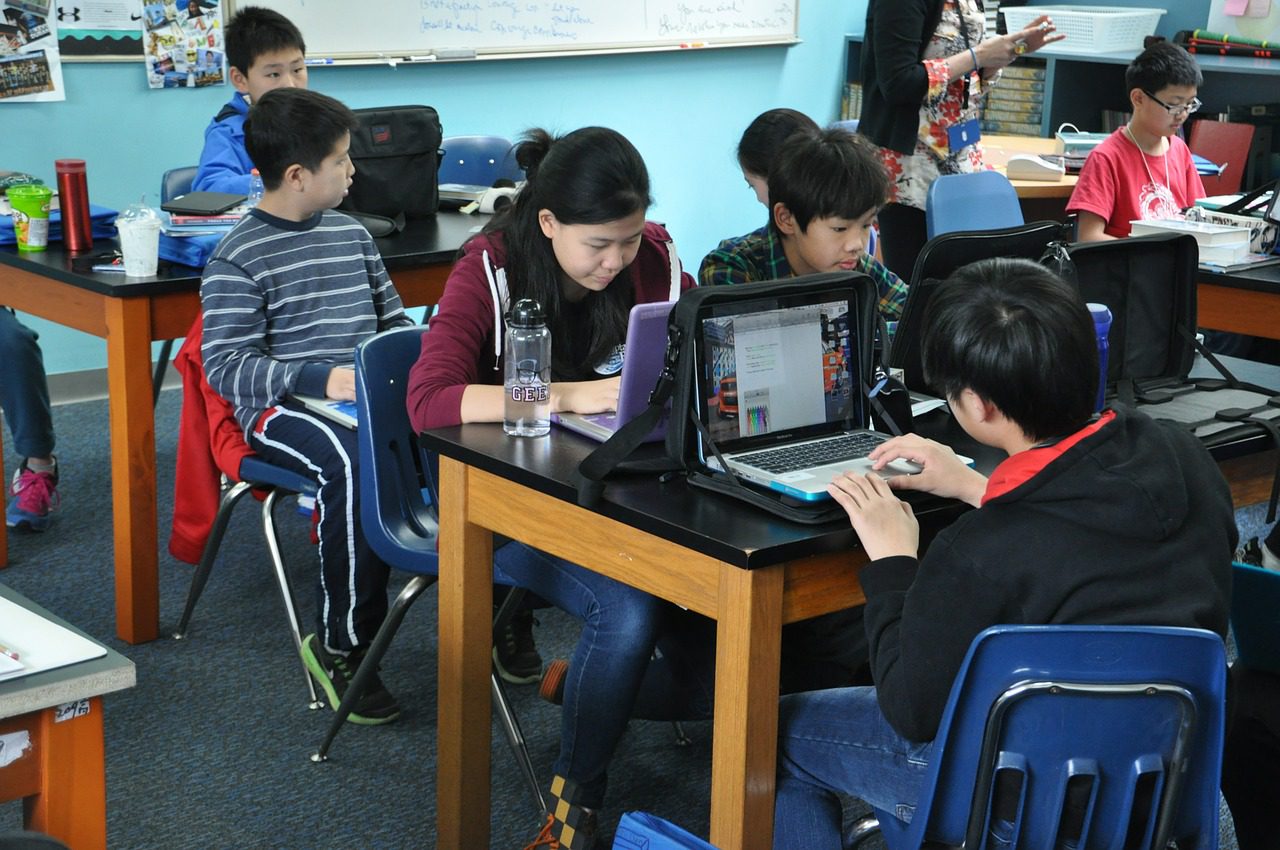
By Marcus Goh and Adrian Kuek
A recent OECD survey has shown that most teens in the world are ‘relatively’ happy with their lot, with 15-year-olds surveyed giving a mean score of 7.3 of 10 in terms of their satisfaction with life. It was conducted by PISA (Programme for International Students Assessment), which also ranked Singapore at the top for global education rankings last year.
One of the findings of the survey cautioned against excessive Internet use. It found that 16 percent of teens surveyed spent more than six hours a day online during weekdays, with 26 percent of teens spending a similar amount of time online during weekends. That’s one quarter of a day spent being connected to the Internet.
Such extreme Internet users were more likely to feel lonely at school, have low expectations when it came to furthering their education, and be late for school, the report said.

It makes sense when you think about it. Their happiness stems from a lack of socialisation, since so much time spent online means less time spent with in person.
Inevitably, comparisons will also arise when teens see what their peers post on social media. However, since people usually carefully curate what they post online, it means that these teens are comparing themselves with the best of what others portray online. It’s basically a lose-lose situation.
Cyber wellness is increasingly becoming an important aspect of overall health, especially during teenage years. So here are some tips for ensuring the positive well-being of your child given how connected he or she will be during their teen years.

1. Make an effort to reach out and socialise in person
This may be a no-brainer, but nothing beats face-to-face interaction with a person. Sure, you can be in constant communication with a person via various messaging apps. But these virtual messages should be a supplement to the real-life communication you have with the person, and not vice versa.
Ensure that your child spends enough time with their friends in social activities so that they can build stronger and healthier bonds. That way, their online communication will strengthen their existing relationships, rather than being the only form of communication they have.
2. Avoid comparisons with what you see online
Teenagers aren’t the only ones who fall prey to this — adults also often compare their lives to their peers based on what they see online. However, just as we make sure to only show the best parts of ourselves online, what we see of others is also similarly only the best parts of themselves. Therefore, it’s an unfair comparison, and a meaningless one at that.
Whatever is seen online should be taken with a pinch of salt, since we don’t always see the full picture.

3. Mark progress by bettering oneself
So if we shouldn’t compare ourselves to others online, who should we compare ourselves to?
The answer is simple — ourselves. We should strive to be a better person than the one we were yesterday, and mark our progress based on our own personal improvements.
It’s a logical and meaningful way of marking progress. The only person we have control over is ourselves, so instead of trying to outdo the people around us, we strive to outdo our own selves instead. Remind your child that the best improvement is self-improvement, and to remember to be a better person each day.
4. Don’t take online rejections personally
The problem with being online so much is that it can be easy to feel rejected when nobody notices your posts or messages you. It might not be an active, or even intentional act of rejection on the other person’s part. However, it can certainly feel that way, because we have this erroneous assumption that everyone sees what we post on social media immediately.
That’s why it’s important not to take these perceived online “rejections” personally. It might not even be a rejection at all, but a function of that social media’s algorithm which determines how many people see what you have posted. Remind your child that at the end of the day, social media is really just a popularity contest. Whatever rejection they feel might not even actually exist.

With these cyber wellness tips, you can help your child harness the power of the Internet without falling prey to its ills.
This article was written for and first published on Yahoo Singapore’s Grade Expectations.
Grade Expectations is a weekly feature on education in Singapore. Expect fun activities, useful tips and insightful news on learning. It’s not just about your child’s grades — it’s about raising a great child!
Marcus Goh runs Write-Handed, a creative writing studio. At the same time, he teaches English at The Write Connection. He has been a specialist tutor for English and Literature (Secondary) since 2005.
Adrian Kuek runs Joyous Learning, an enrichment centre that specialises in English, Mathematics, Science and Creative Writing for Primary. He previously served as the academic director of one of Singapore’s largest enrichment centre chains for over seven years.
If you liked the article, follow me on Facebook and Twitter for more (presumably) good updates!
To get in touch with me, send an email!
Leave a Reply